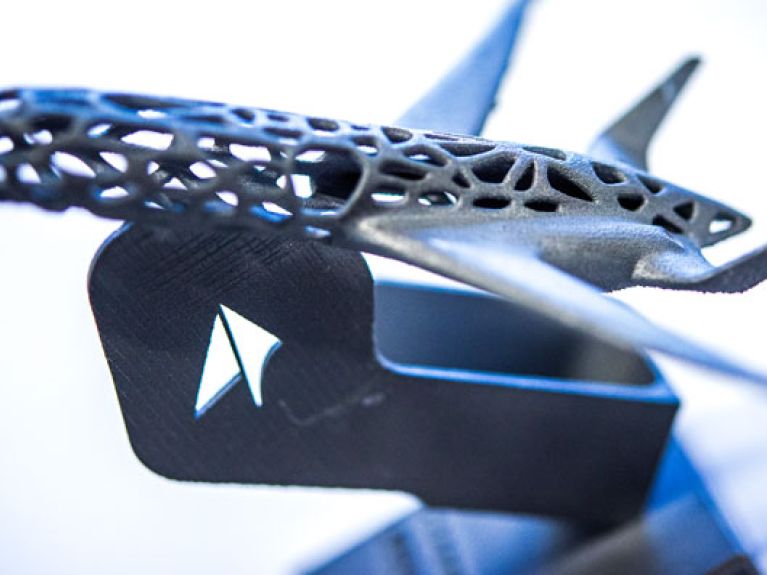Who will win the 2015 German Future Prize?
The 2015 German Future Prize will be awarded in Berlin on 2 December. These are the three nominated researcher teams.

Radar technology for cars
A team of researchers working for Munich-based semiconductor manufacturer Infineon has created the basis for being able to produce low-cost active safety systems for cars, thereby also making them economically viable for small and mid-range vehicles. In concrete terms, they developed two innovations: a production technology for radar chips based on silicon and silicon-germanium and a new packaging technology. Passive safety systems like safety belts, airbags and ABS have already increased safety on the roads. In the near future, active systems with radar sensors will be able to detect pedestrians, monitor blind spots, warn drivers they are not keeping enough distance from other vehicles and even automatically carry out an emergency stop.
3-D printing in aircraft manufacturing
Researchers and developers from Airbus, LON Laser Centrum Nord and Concept Laser have succeeded in printing three-dimensional metal components. Until now that was only possible using plastics or easily fusible alloys. Unlike conventional manufacturing methods, which punch, saw or cut products out of a block of metal, the new technique builds components layer by layer. That offers several advantages: significantly less material and energy is used, engineers have greater freedom in component design, and it is relatively easy and cheap to produce prototypes, single pieces or small batches. The new LaserCUSING process makes it possible to use 3-D printing to manufacture components that can withstand heavy mechanical and thermal stress for the first time. They are already being deployed in the Airbus 350 – and will probably very soon be used in vehicle manufacturing, mechanical engineering and plant construction.
Relief for patients with pulmonary hypertension
A team of researchers from Bayer Pharma and Justus Liebig University Giessen has developed a new medicine that eases the symptoms of pulmonary hypertension and slows down the development of the condition. Patients with pulmonary hypertension often suffer from severe shortness of breath, tiredness and circulatory problems. Until recently there was practically no prospect of a cure. If the condition is not treated, patients usually die of heart failure within a few years. The drug ADEMPAS© has now been approved in over 50 countries.
Award of the German Future Prize on 2 December 2015 in Berlin

